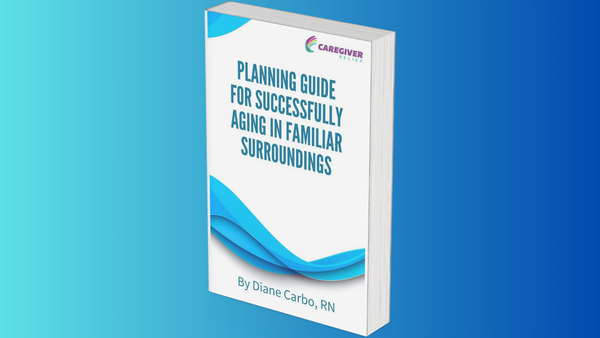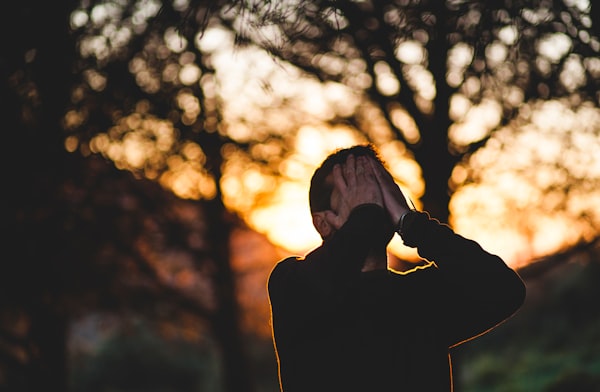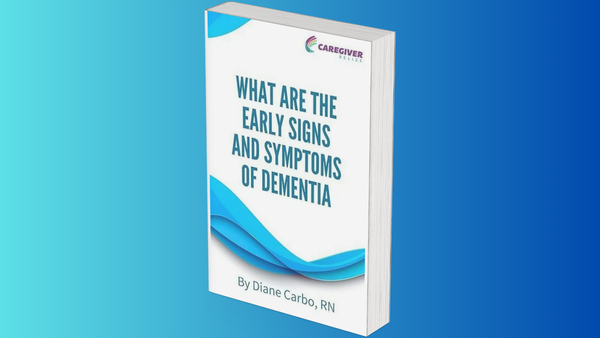Can Anxiety Cause Fear of Death?

Anxiety is a normal emotional response that people may have when facing stressful situations. It can range from a feeling of everyday uneasiness to severe panic attacks and can cause physical, emotional, and social symptoms. While anxiety can be beneficial in certain scenarios, it can become overwhelming and have a negative effect on one’s life. In extreme cases, it can even lead to fear of death.
This guide is aimed at providing an overview of the concept of anxiety and how it can lead to fears of death. We will discuss what causes anxiety, how anxiety and fear of death are linked, and examples of destructive behaviors caused by fear of death. Additionally, we will explore methods to cope with anxiety and fear of death, and provide some shareable content related to this topic.
It’s important to keep in mind that if anxiety or fear of death is becoming too disruptive in daily life, it’s best to seek professional help. Anxiety can be managed, but cannot always be eliminated. Learning how to cope with it, however, can lead to a more peaceful and fulfilling life.
Anxiety is a common and natural emotion that every person experiences at some point in their life. It is characterized by feelings of worry, fear, and uneasiness about future events. While anxiety is normal and often helpful, it can sometimes become overwhelming and cause significant emotional and physical issues.
So, what causes anxiety? Anxiety is typically triggered by stress or a traumatic event but can also be caused by a variety of factors. Common causes of anxiety include:
• Health-related problems: Physical health problems, such as chronic illnesses or new medical diagnoses, can trigger anxiety. Medical treatments, such as surgery, can also lead to anxiety.
• Relationship issues: Whether it’s a new relationship, an old one, or a lack of meaningful relationships, relationship issues can cause anxiety.
• Workplace pressures: Job-related stress, deadlines, and performance expectations can take a toll on mental health and cause anxiety.
• Financial worries: Debts, bills, and other financial problems can lead to feelings of anxiety.
• Overwhelming responsibilities: Having too much on your plate can create anxiety. This includes taking care of children, work tasks, attending school, or having multiple jobs.
• A major life change: Moving, changing jobs, starting a new school, or the death of a loved one can all trigger anxiety.
• Genetics: For some people, anxiety may be passed down through generations and be due to inherited genes.
• Substance abuse: Alcohol and drugs can increase anxiety levels.
• Traumatic events: Experiencing or witnessing a traumatic event can lead to post-traumatic stress disorder (PTSD) and anxiety.
No matter the cause, anxiety can be managed with the help of a doctor or mental health professional. It is important to seek help if anxiety begins to interfere with day to day activities, relationships, or work.
Anxiety is an emotion that can range from mild to extreme. When a person experiences anxiety, they may be filled with feelings of fear and worry. In some cases, this feeling can manifest as a fear of death. This fear can be difficult to manage, but it is important to understand how anxiety and fear of death are related in order to create effective coping mechanisms.
Though everyone experiences fear of death differently, it typically arises as a response to anxiety. Many people experience symptoms of anxiety such as increased heart rate, sweating, and difficulty breathing. These physical sensations can become overwhelming and lead people to believe that something is wrong with their body. It is not uncommon for people to think the worst in these situations and fear death.
It is important to recognize that these feelings are normal and can be managed. Three primary strategies can be used to address anxiety and fear of death: mindfulness, cognitive behavioral therapy, and medication.
Mindfulness is a form of meditation that helps individuals focus on the present and gain awareness of their thoughts and feelings. Mindfulness practices such as breathwork, journaling, and yoga can help individuals cope with anxious thoughts. Cognitive behavioral therapy (CBT) is also an effective tool to manage anxiety and fear of death. CBT focuses on identifying and challenging negative thought patterns in order to reduce feelings of distress. Finally, medication can be prescribed to alleviate physical and emotional symptoms of anxiety.
It is important to remember that anxiety and fear of death are normal emotions and can be effectively managed. It is recommended that individuals reach out for help if their anxiety or fear of death becomes overwhelming. With the right support, individuals can learn how to cope with their anxiety and gain a better understanding of how their feelings relate to their fear of death.
Fear of death is a common emotion, and it can be difficult to identify the cause. For some people, however, anxiety can be the culprit and can lead to deeper feelings of fear of death. It can also lead to destructive behaviors such as substance abuse, self-isolation, or avoidance of certain activities.
It is important to note that fear of death does not have to lead to destructive behaviors. With proper coping techniques, like those outlined below, it is possible to manage anxieties and fears of death in a safe and healthy manner.
Examples of destructive behaviors resulting from fear of death include:
- Substance Abuse: Drinking alcohol, using drugs, or taking medications in order to “forget” about death.
- Self-Isolation: Becoming more and more isolated from friends and family, opting instead to stay at home and internalize their fear of death.
- Avoidance of Certain Activities: Refusing to engage in activities that involve some element of risk, such as driving, flying, climbing, etc.
- Engaging in Dangerous Activities: Seeking out danger or thrill-seeking activities in order to distract oneself from fear of death.
These behaviors can be dangerous and should be avoided at all costs. If you find yourself engaging in any of the above behaviors, it is important to talk to a mental health professional who can help you manage your fears and anxieties.
Anxiety can cause a wide range of emotions and physical effects, one of which is fear of death. Experiencing fear of death because of anxiety can be a difficult and overwhelming situation. Thankfully, by addressing the underlying anxiety and developing coping strategies, it is possible to lessen the fear of death and create positive outcomes in one’s life.
There are various steps to address anxiety and fear of death. It is important to first recognize any triggers that are causing the fear and identify the physical symptoms experienced when feeling fear. When these triggers and symptoms are identified, it is important to find ways to manage them.
Breathing exercises are an effective tool to reduce anxiety. Taking slow, deep breaths for several minutes can help to reduce heart rate and reduce stress hormone levels. Positive self-talk, such as repeating affirmations or being mindful of situations can also be incredibly helpful for managing anxious thoughts. Additionally, finding healthy ways to cope with stress such as physical activity, meditation and yoga, or talking to friends or family, can help to reduce overall anxiety levels.
It is also beneficial to recognize and assess one’s own values and beliefs. Identifying what is truly important in life and setting realistic expectations can help to focus on the present moment and provide clarity and peace of mind.
Finally, seeking professional help is always an option when dealing with anxiety and fear of death. Seeking the guidance of a mental health specialist or therapist can provide someone with the best advice and support for individual needs. There are also various online resources available to help address anxiety related issues, such as cognitive behavioral therapy programs, mindfulness techniques, and support groups.
By taking the time to recognize triggers, symptoms, and possible coping strategies, individuals can begin to develop positive outcomes in their lives and lessen the fear of death caused by anxiety.
It’s important to acknowledge that anxiety, while normal, can become an issue when it escalates and leads to a fear of death. Everyone experiences anxiety to some degree, but when it becomes overwhelming, it’s time to seek help.
This guide has provided an overview of anxiety and its link to fear of death. We have outlined common causes of anxiety, explained how anxiety and fear of death are linked, provided examples of destructive behaviors from fear of death, discussed various ways to address anxiety and fear of death, and summarized the key points.
If you find yourself feeling overwhelmed by anxiety, it’s important to talk to family, friends, or a mental health professional. There is no shame in admitting you need help. A mental health professional can provide personalized strategies to cope with anxiety and fear of death.
Remember, it’s okay to ask for help. Everyone experiences anxiety differently, and your recovery will depend on determining the best manageable solution for you. Know that there is hope, and don’t be afraid to reach out.
Fear of death is a complex emotion that is deeply rooted in our psychology. While it is normal to experience anxiety when faced with the prospect of death, for some individuals, this anxiety can become overwhelming and lead to feelings of extreme fear and dread. Anxiety can manifest in a variety of ways including panic attacks, avoidance of social activities, excessive worrying, and irrational thoughts about mortality. It is important to address such fears, as ignoring them could result in destructive behaviors and long-term mental health issues.
Treatment options such as cognitive-behavioral therapy, psychotherapy, and medication have been proven effective in managing anxiety and fear of death. Additionally, lifestyle changes such as maintaining a healthy diet, exercising regularly, and creating a calming sleep routine can help to reduce anxiety symptoms. It is also important to practice self-care and reach out to trusted family and friends to express your worries and develop a support system. Remember, no one has to go through this struggle alone.
We hope this guide has shed light on the link between anxiety and fear of death. Although difficult to manage, with the right coping strategies and professional help, we can learn to better manage our fear of dying and begin to live life to its fullest.
You might also like this article:






